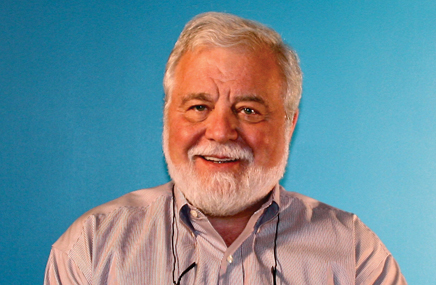Vertical reshuffles are often announced in releases so larded with inflated language and self-backslapping that they end up sounding like dispatches from North Korea. But in the reader’s mind, it comes down to this: Some guy replaced some other guy.
But when Vox Medica announced a sweeping leadership overhaul in early April, there was reason to believe the press-release platitudes weren’t merely…well, press-release platitudes. As part of the changes, the firm acquired healthcare consultancy Transit of Venus, helmed by former Dorland Global execs Michael Barnett and Jim Moran. Barnett and Moran, in turn, became equity partners at Vox, along with Vox president Lorna Weir. Vox CEO Donald Phillips continued as a partner, capping the ownership group at four.
Former principals E. Michael D. Scott and Eve Dryer will stay involved at Vox, Scott in the staff role of senior strategist and Dryer as a consultant. Cathy Pagano will remain at the helm of Vox’s med-ed firm, The Institute of Continuing Healthcare Education.
The changes are notable for several reasons. First, according to Phillips, the “momentous event” ensures stability in the years ahead. “As CEO, my job is to set the future course of the company and to make sure there’s a succession plan in place,” he says. “We accomplished both those things in one stroke. We pulled talent on board to fulfill the vision we have for the future.”

At the same time, Vox broadened its talent base considerably with the additions of Barnett and Moran. “Their experience is very complementary to what we have here already, plus they add more depth at a time when you can’t have enough of it,” Weir says. Phillips, on the other hand, talks up the pair’s bona fides as marketing strategists and their specific skill sets: “They bring a high level of understanding from reimbursement and value-proposition points of view.”
To hear Barnett and Moran tell it, allying themselves with Vox was a natural move, even if it meant sacrificing a degree of independence. “I had been with Borland a long time and was there when it was bought by a very large holding company. I didn’t like that,” he recalls. “So Michael and I were of a mind to build our own thing.” But they left a meeting with the Vox hierarchy impressed by both the fit and the chemistry, which was affirmed when they worked with Vox on a handful of projects.
“Both companies were doing quite well on their own,” Phillips stresses. “It wasn’t a move of desperation for anyone. It was a nice situation to be in, that kind of alignment of the planets.”
While the acquisition and leadership-suite changes soaked up much time and energy, Vox still finished 2011 in fine shape. “It was our best year in five years,” Weir enthuses. The firm launched Horizon Pharma’s first commercial product (Duexis, for rheumatoid arthritis and osteoarthritis) and is working on its second. Vox also handled work from Genentech (for its managed care group), Alkermes (for the launch of the opioid indication for Vivitrol) and Lundbeck (for Xenazine, a Huntington’s disease treatment). It parted ways with a single client, the Washington, DC-based nonprofit Council for Affordable Quality Healthcare.
“The real value we provide is in the consultative, opinion-leader-nurturing area, and our structure reflects that,” Phillips says. “Advertising and PR, they’re commoditized now. We plan to differentiate ourselves on how smart we are, not on how least-expensively we can do an ad or media campaign.”
From the July 01, 2012 Issue of MM+M - Medical Marketing and Media








